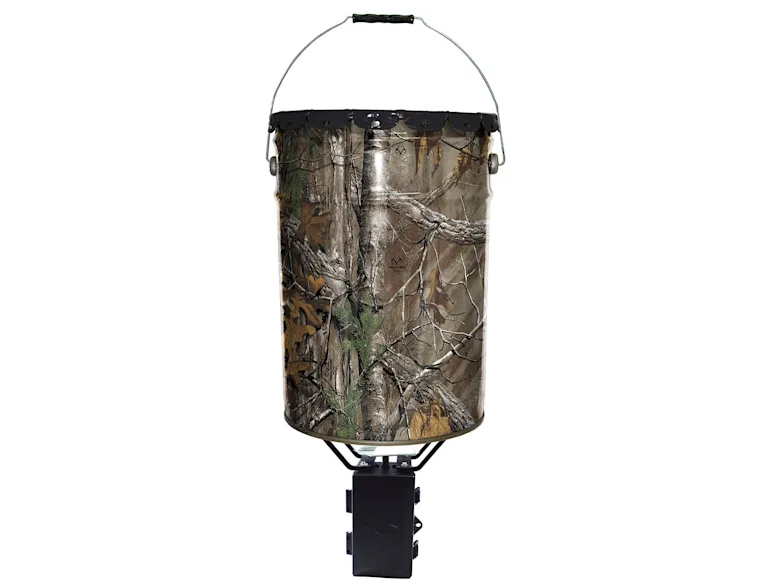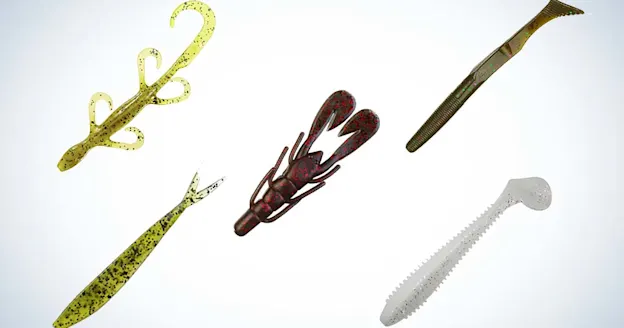_We may earn revenue from the products available on this page and participate in affiliate programs. Learn more ›
_
Best Large Feeder
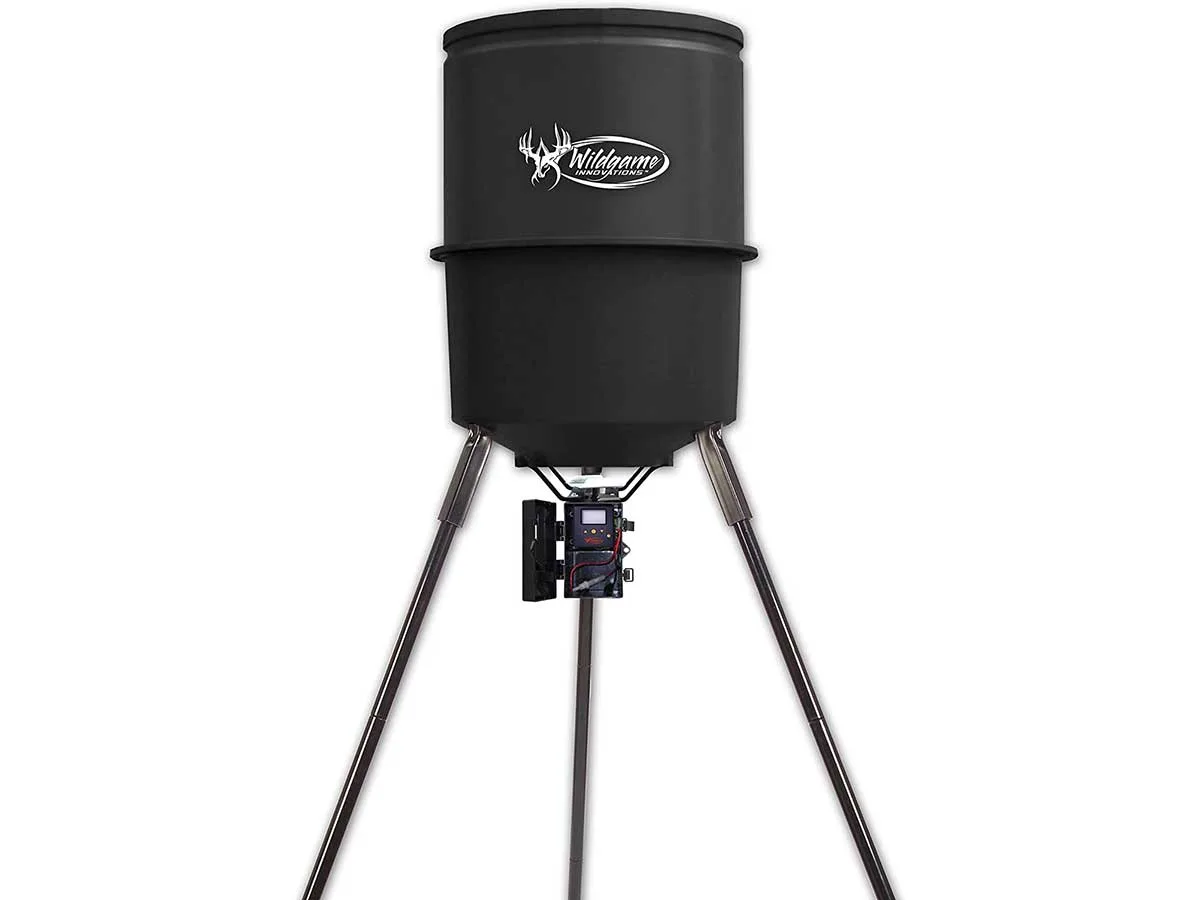
Wildgame Innovations 40 Gal Feeder
LEARN MORE
Summary
A 40-gallon steel feeder that only needs to be filled once or twice a season.
Best Battery-Powered Feeder
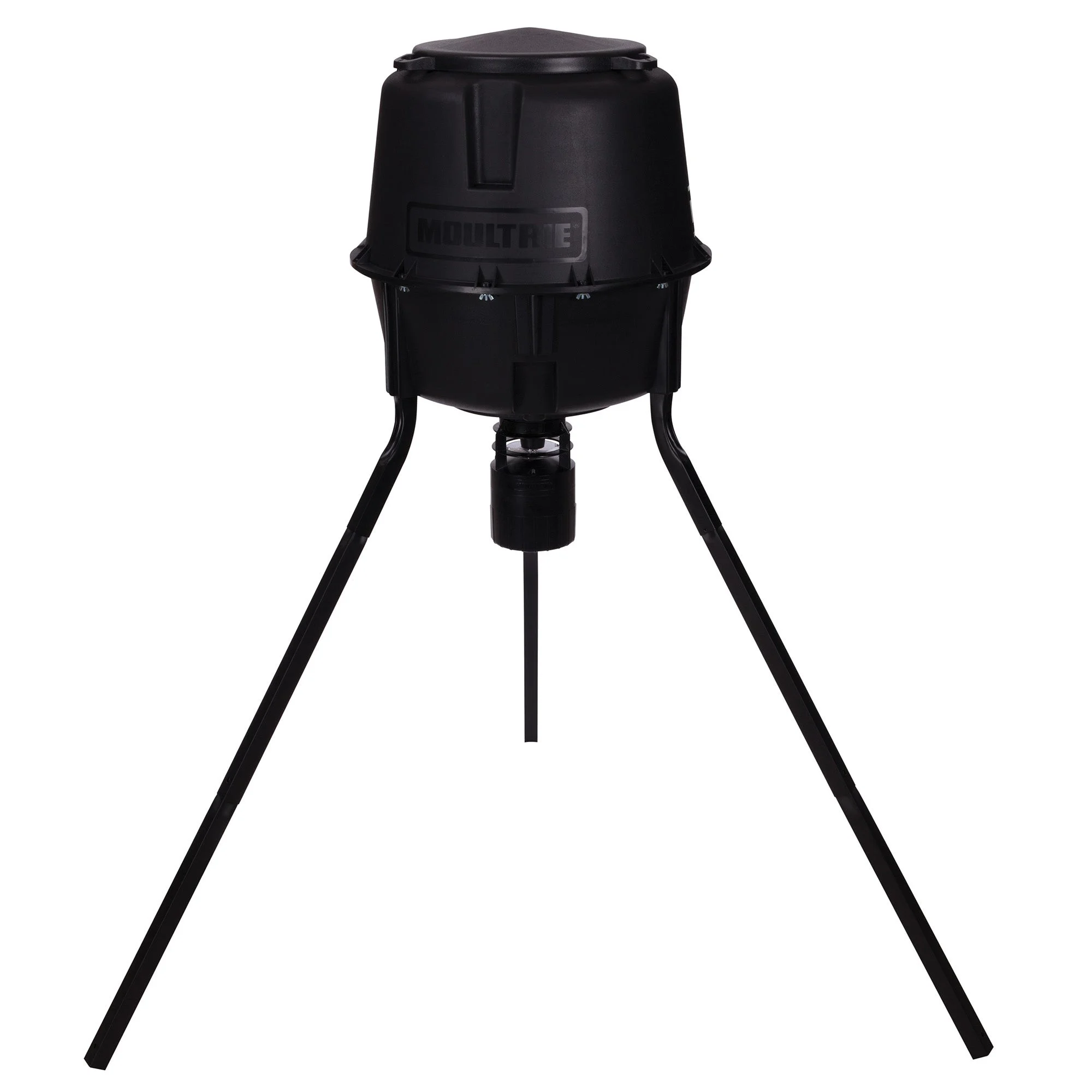
Moultrie 30 Gal Feeder
LEARN MORE
Summary
This feeder has a digital timer that will feed up to six times daily with feeding duration of one to 30 seconds.
Best Sturdy Feeder
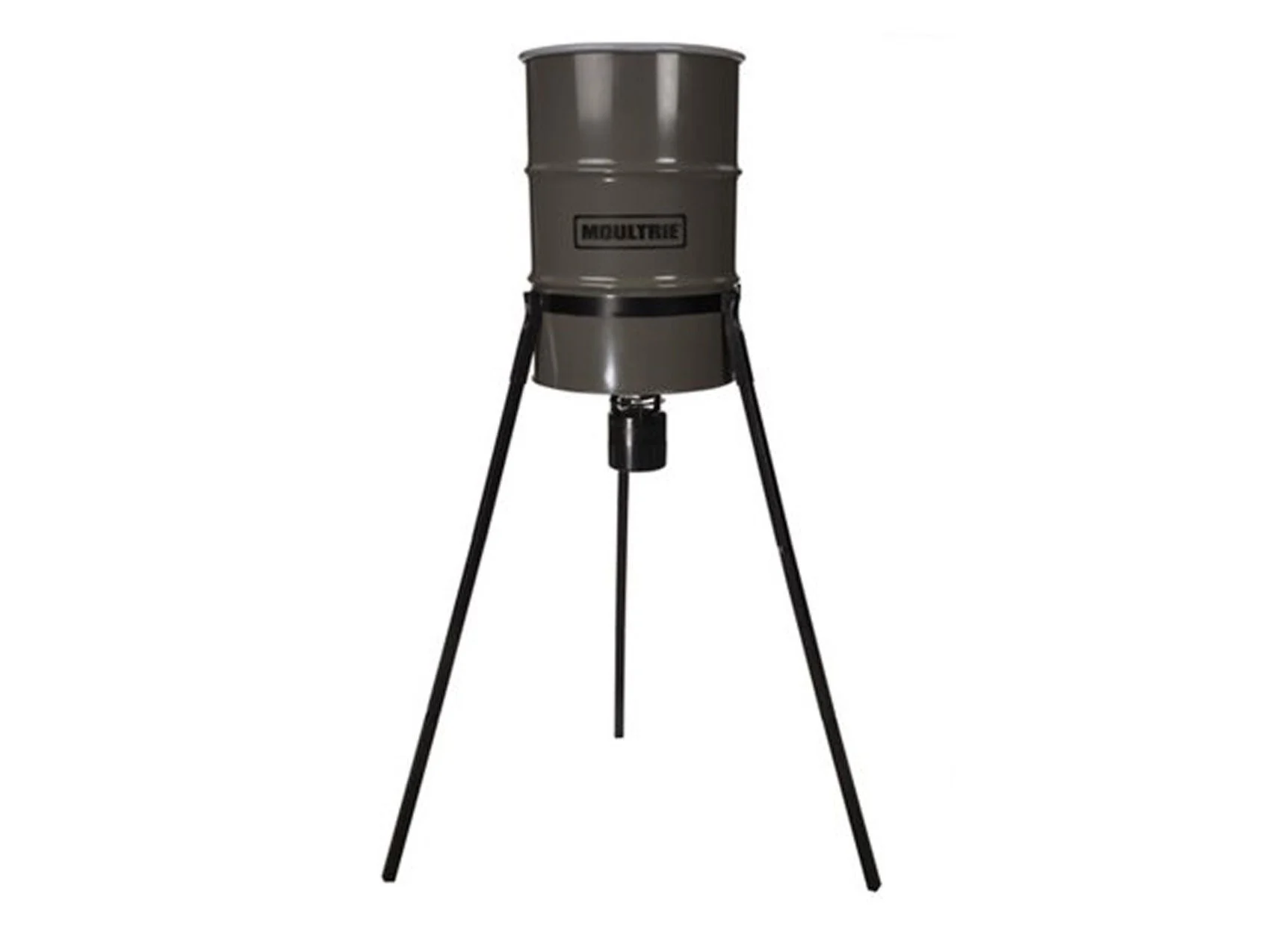
Moultrie Pro Hunter Tripod Feeder
LEARN MORE
Summary
A 55 gallon feeder with stable tripod legs that is built to last.
By: The Editors
Deer feeders are fun for wildlife watchers and rural dwellers who like to draw whitetails to their backyards for viewing. For hunters, they can be the perfect tool for keeping deer in your hunting area or even drawing a big buck to within bow range. However, knowing what factors to consider when making your first deer feeder purchase can be hit-and-miss without a little expert advice. Here are 10 things you need to know before making your selection.
Deer Feeder Capacity
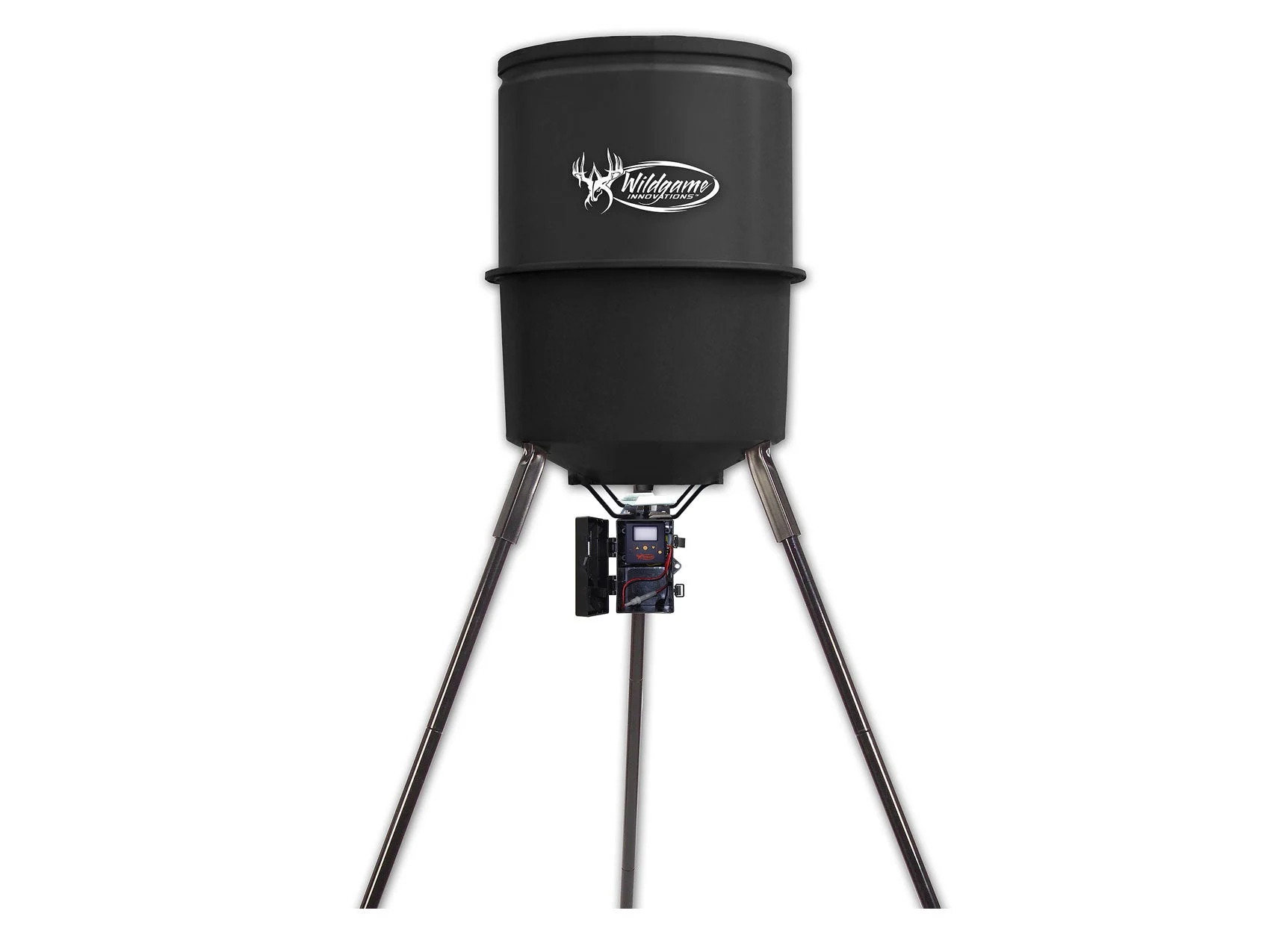
This large steel feeder, with 40-gallon capacity, is ideal for hunters who want to fill their feeder only a time or two each fall. Walmart
are available in a wide range of capacities, from those that hold just a few gallons of corn all the way up to behemoths that hold thousands of pounds. Several aspects should be considered when deciding how big of deer feeder you need. If you only visit your hunting area infrequently, you’ll need a bigger feeder that doesn’t have to be refilled as often. Likewise, if access is tough and the drive to a feeder is treacherous, a bigger feeder will keep you from having to make the trip as often. But if your feeder is in an easy-to-reach location that you can drive right up to anytime you want, a smaller capacity feeder will work just as well.
Deer Feeder Weight
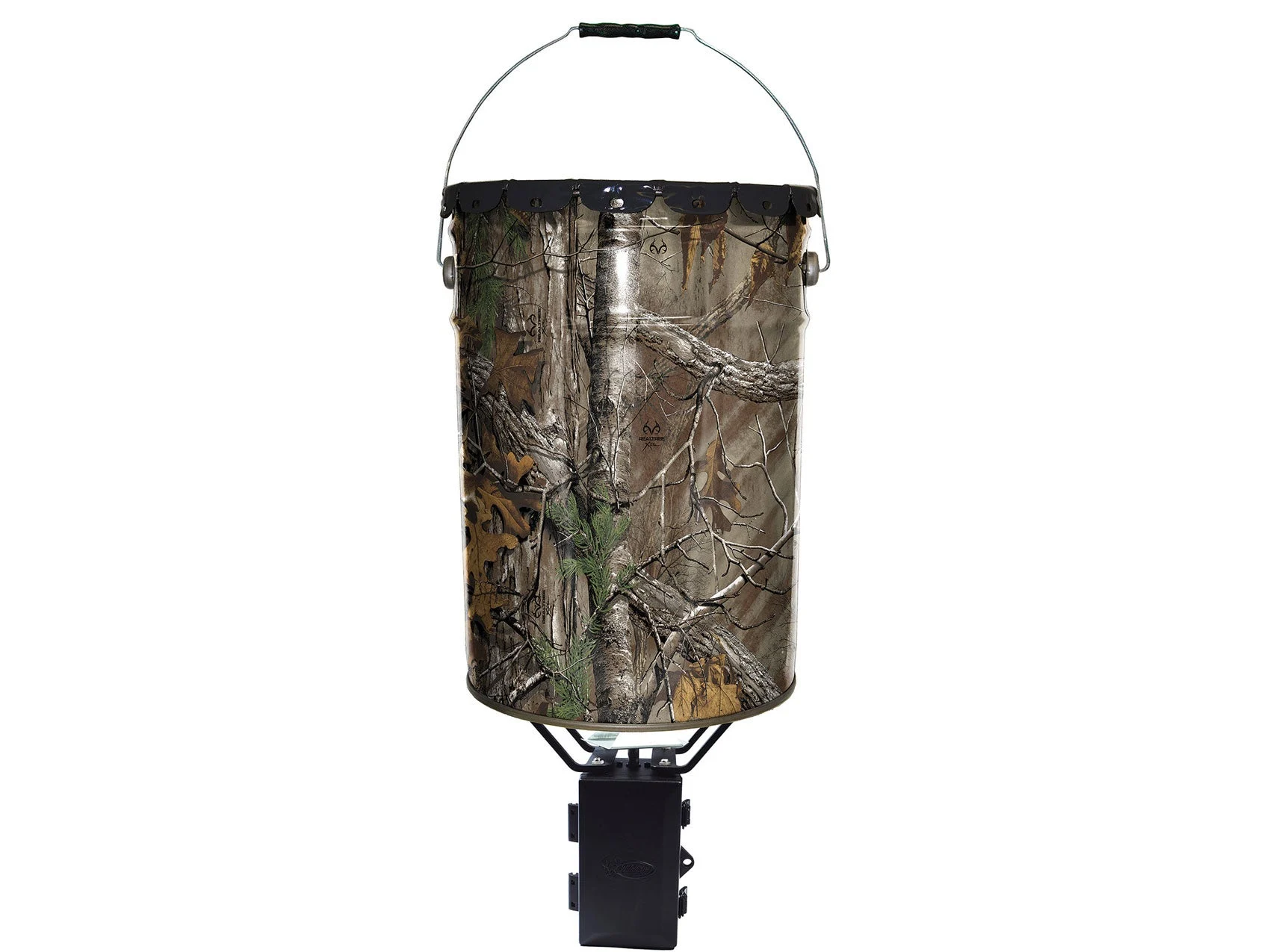
This 6.5-gallon hanging feeder is perfect for using in remote areas where it is difficult to haul and set up a big feeder.
This 6.5-gallon hanging feeder is perfect for using in remote areas where it is difficult to haul and set up a big feeder. Walmart
Weight is another factor that largely depends on access. If you can easily drive right to the spot where you want to assemble and place your feeder
, a heavy feeder is going to be fine. (Such easy-access locations will make your life easier every time you need to fill your feeder, too.) Conversely, if you are going to haul a feeder into a remote new area, a lighter feeder is much better. Also consider how much help you’ll have when setting up, maintaining, filling and moving feeders from area to area. If you have some big, burly buddies who are always ready to pitch in, heavier is fine. If not, opting for a lighter feeder will likely pay off in the long run.
Triggering Mechanism
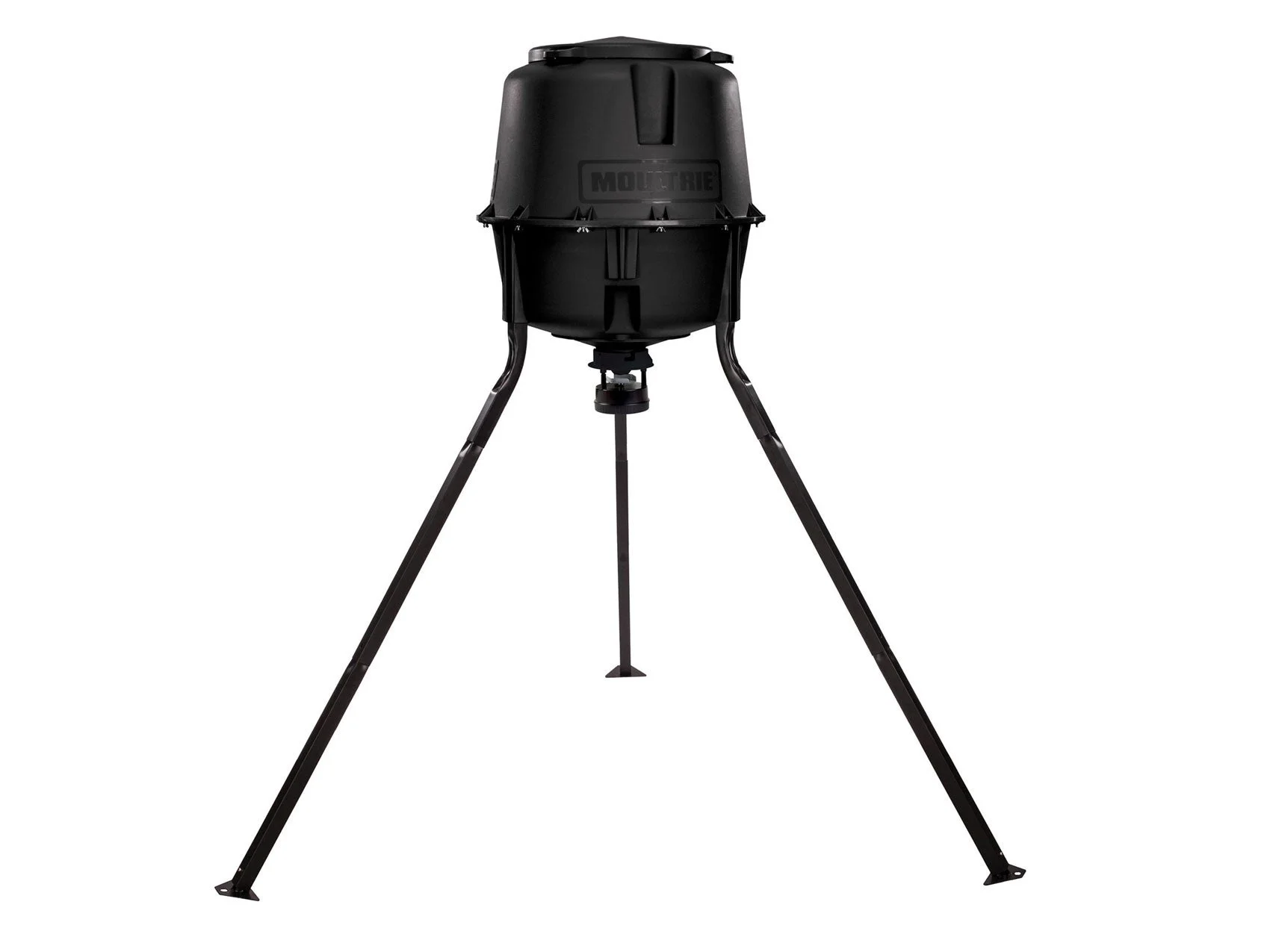
This Moultrie feeder has a digital timer that will feed up to six times daily with feeding duration of one to 30 seconds. Walmart
Gravity feeders
don’t need a motor to dispense food. But battery-powered feeders, which use an electric motor and spinner to dispense the corn, must have a timer that tells the motor when to start and how long to run. Photocell feeders have a sensor that lets them know when the light starts getting low, and will automatically feed at about 30 minutes after dawn and 30 minutes before dusk, depending on cloud cover. You can set them for whatever duration you wish to dispense feed. Digital timers let you set exactly what time you want your feeder to run, and many can be set for several times a day. If you want to feed more than twice a day, a digital timer is your best option. If you don’t want to mess with the hassle of constantly having to change feeding times because of shorter and shorter days throughout the fall, go with a photocell feeder.
Varmint Proofing
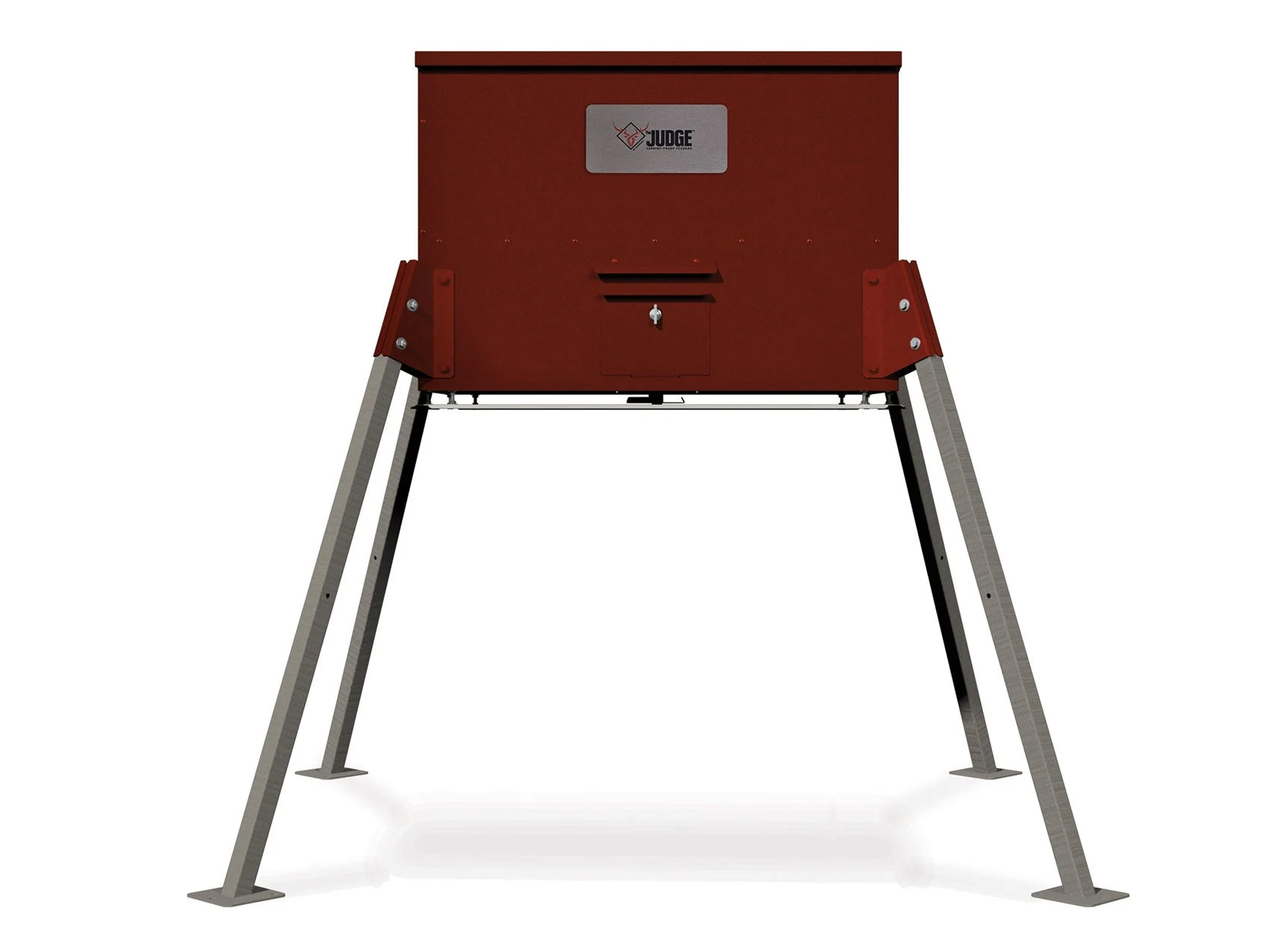
The Judge feeder has a specially designed varmint shield to keep raccoons, squirrels and other varmints from wasting your corn. Walmart
Deer love corn, but so do other animals that live in the woods. Raccoons are among the most destructive varmints to visit deer feeders
. Since it’s nearly impossible to fence a feeder to keep raccoons out but let deer in, stopping the little devils can be a problem. Some are smart enough to hang on to the bottom of feeder with three feet while rotating the spinner with the available foot, all the while pouring corn on the ground for them and their fellow bandits to eat. Racoons and squirrels can also chew through wiring, causing feeder failure. Fortunately, many feeders come with varmint proof motors, ranging in quality from heavy-duty to rather flimsy and ineffective. Before you try to varmint proof your feeder yourself, note that a good built-on varmint guard nearly always works better than the chicken wire and zip tie solution you might be considering.
Hanging Versus Standing
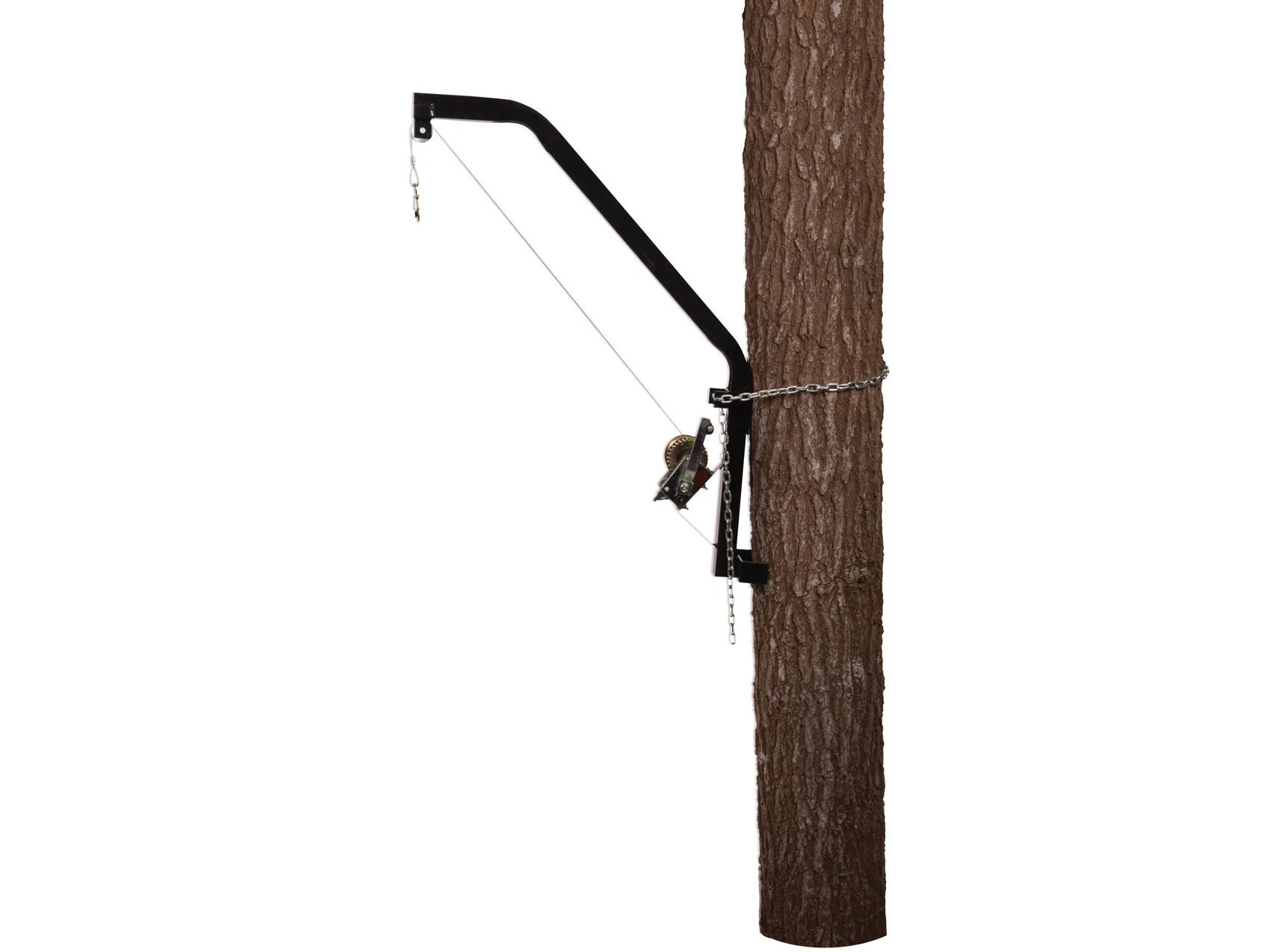
This handy feeder hanger will allow you to hang your feeder out of harm’s way even when there are no easily accessible tree limbs. Walmart
Most deer feeders either stand on three (tripod) or four legs, or hang from some kind of structure (usually an accessible limb). Both kinds have their positive and negative attributes. Tripod feeders can be set up virtually anywhere, no tree necessary. Unfortunately, unless they are very strongly made, they can be damaged by cattle, bears and wild hogs, which can cost you a lot of corn and extra effort. Four-legged feeders tend to be a little more stable than tripods but are also more expensive. Hanging feeders
can be put out of reach of cattle and other destructive visitors, but require a tree with an easily accessible limb—not always available in the location you want your feeder. A good rule of thumb is if you are going to fence it in, use a standing feeder. If not, go with a hanging feeder (if there’s a tree available).
Funneling Ability
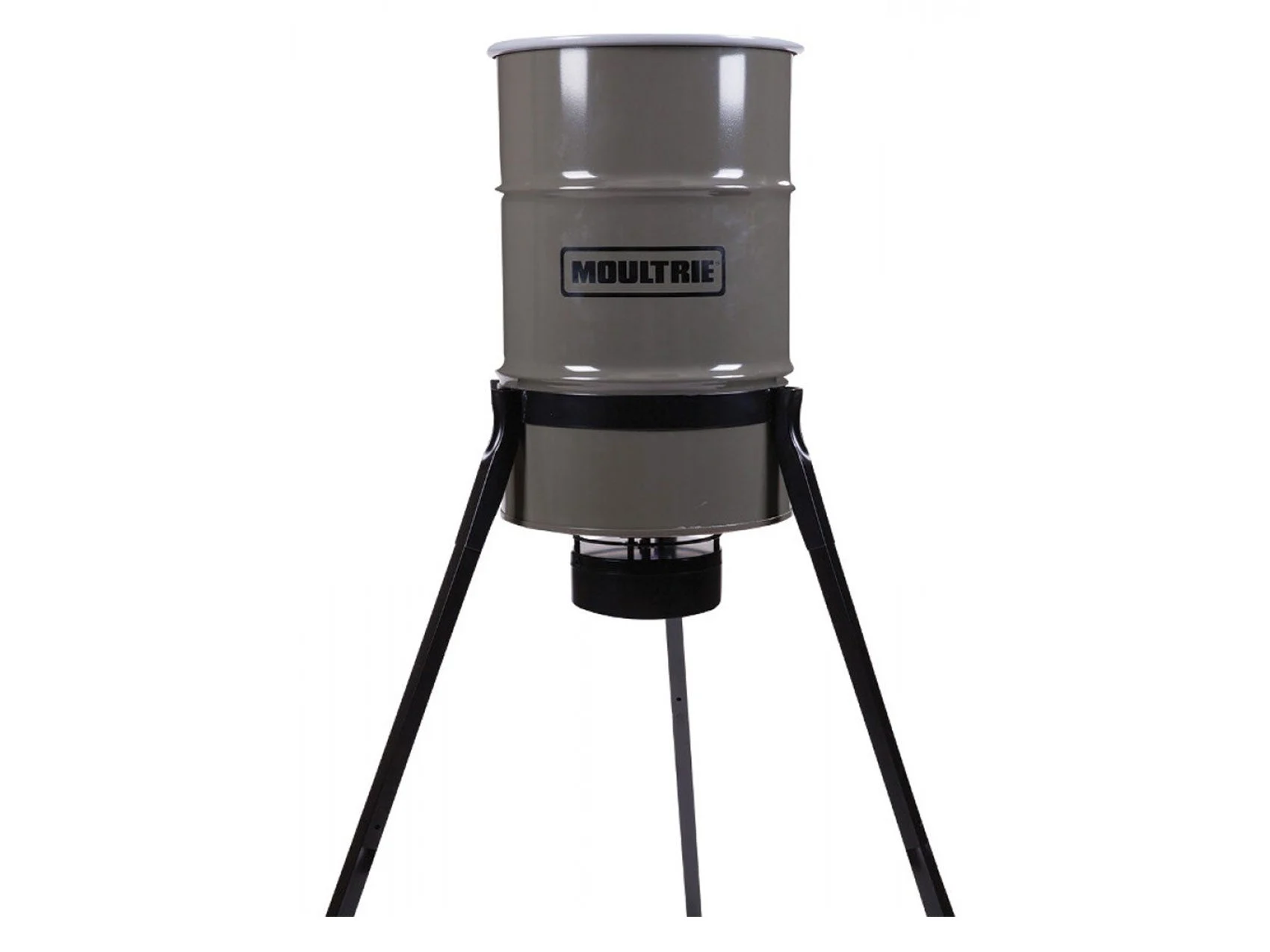
Even with a flat bottom, this Moultrie feeder has a built-in funnel to keep corn moving downward toward the spinner. Walmart
A flat-bottomed feeder with no funneling mechanism will cause you problems for as long as you own it. That’s why people who make their own feeders out of old 55-gallon drums
often have to shake them every time they walk by, just to make sure corn falls down onto the spinner. Look for a feeder with a funnel-shaped bottom that will keep corn moving in the direction you want it to go. For flat-bottomed feeders, make sure you pick one that has either an internal or external funnel so you won’t constantly have to do the job that gravity should do for you. There are also a variety of aftermarket products you can use to ensure your feeder funnels corn to the spinner. If yours does not do a good job at that, look into those options.
Ease Of Filling
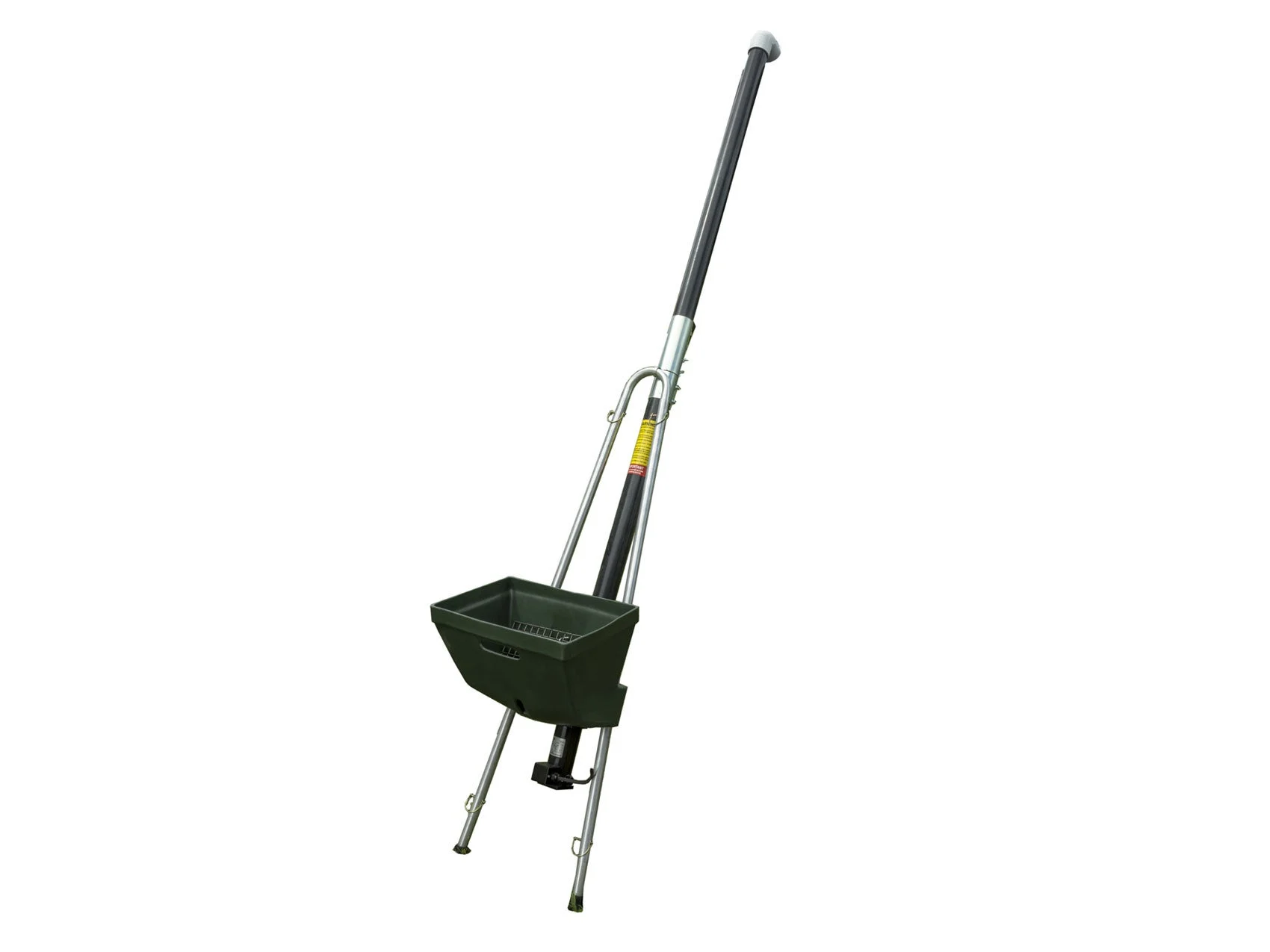
This auger-type feeder filler allows you to easily and safely fill feeders up to 13 feet tall without a stepladder—or other precarious perch. Walmart
A feeder
that’s too tall to fill when you are standing safely in the bed of your truck is going to create serious safety problems, like standing on the side panel or tailgate while pouring a 50-pound bag of corn above your head. Feeders that are low enough to fill easily can have some of the varmint and cow/pig/bear problems discussed earlier. You should know how tall the back of your pickup is and the height of the top of your feeder when it is set up to make a good selection. If you have to, carry a stepladder along, although that can be a hassle if you are going on a long trek. Some companies make auger-style feeder fillers that, while somewhat expensive, come in really handy for quickly, easily and safely filling your feeder.
Sturdiness/Stability

This magnum tripod feeder has square legs for added stability and sturdiness. Walmart
Sturdiness is important for two reasons. Once you get several hundred pounds of corn in your feeder, the legs had better be strong enough to hold that weight. Feeders also get banged around by cattle, bears and hogs—occasionally even pickup trucks—so must be sturdy enough to withstand that kind of damage. Many new feeders
have square legs instead of round ones, and those tend to be somewhat more sturdy. Also, look for a feeder that’s sales information mentions reinforced legs or specifically talks about sturdiness as an important sales point. If you buy a feeder that isn’t sturdy, you will be picking it up off the ground more than once in the future. By then, a lot of corn will have been wasted to varmints and other corn-eating animals you’re not necessarily interested in feeding.
Deer Feed
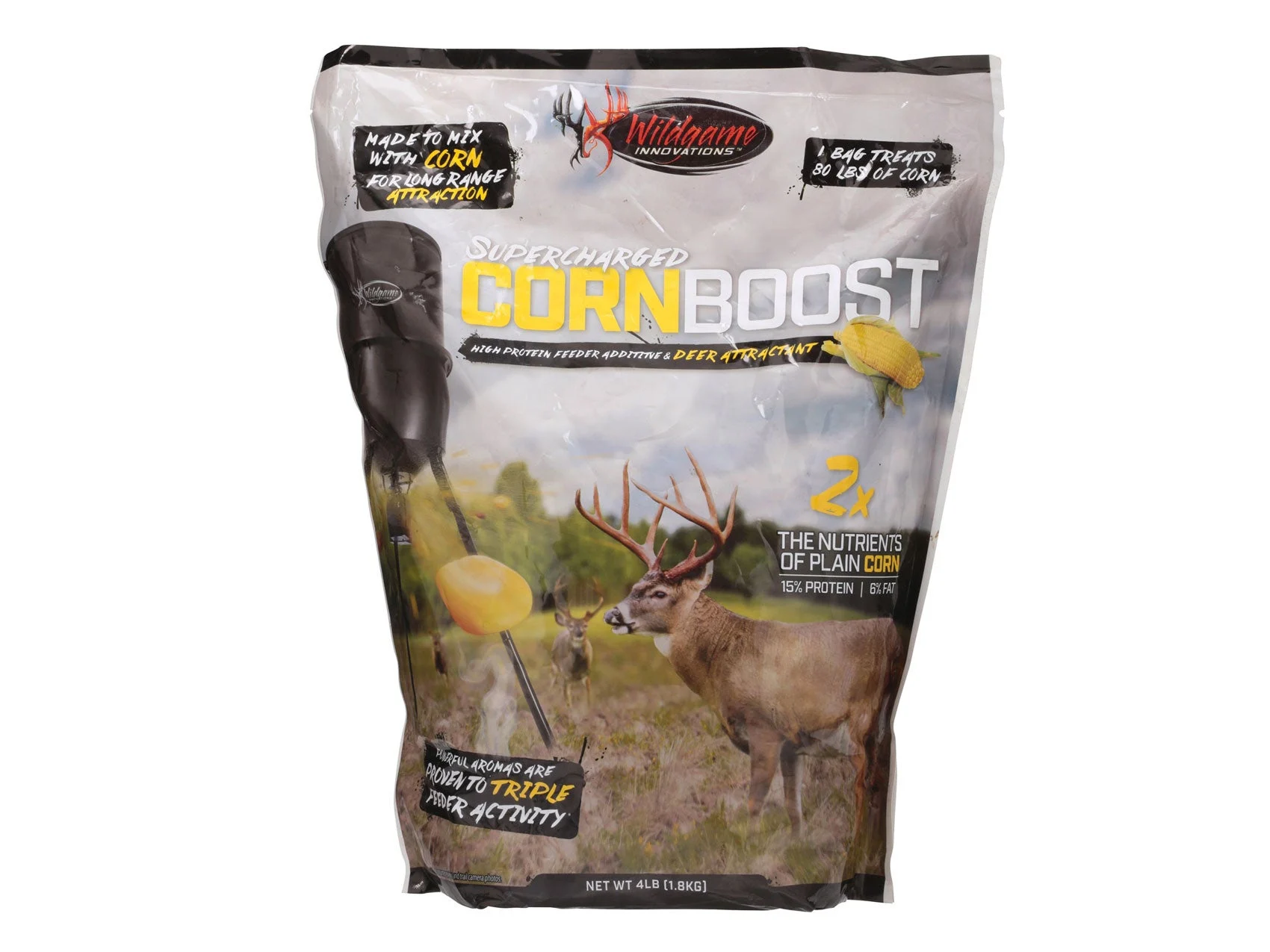
This deer corn has an added “secret” attractant for drawing more deer to your hunting area and keeping them there. Walmart
While deer like a variety of foods, most deer feeders are made to feed dried whole-kernel corn
. Some people feed their deer various protein mixes for nutritional purposes, but those won’t run well though a battery-powered feeder and are generally fed from protein-specific gravity feeders. Corn can be bought in 40- to 50-pound bags or even purchased by the ton from grain dealers. For it to be most effective for feeding deer, corn must be cleaned well and free of mold and mildew. Deer corn also comes in various “flavors” to try to attract even more deer to your area. Some hunters swear by apple-flavored corn, while others believe that added fragrances/flavors scare more deer away than they attract. You’ll need to do some experimenting and decide for yourself.
A Little Something Extra
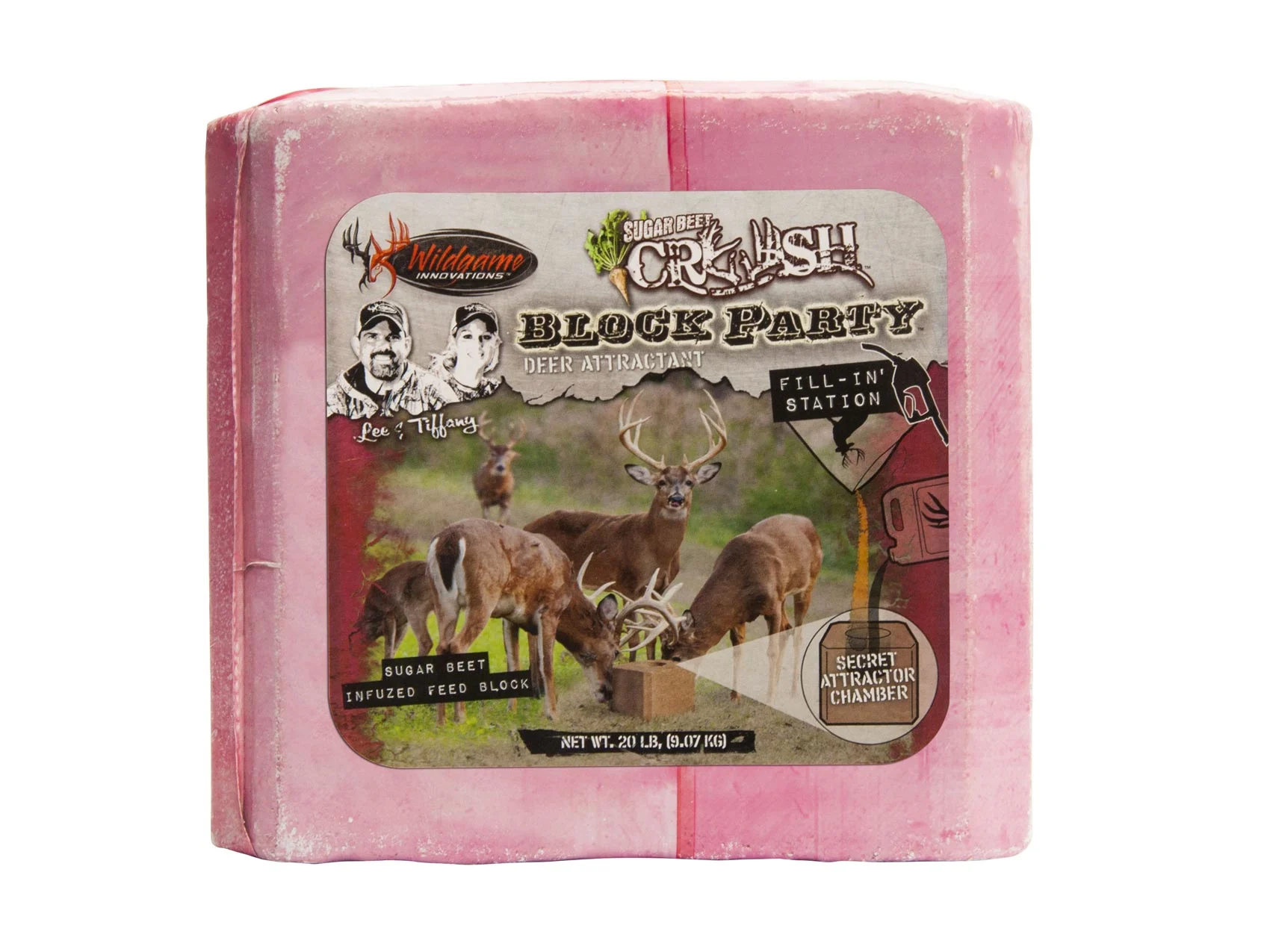
This salt and mineral block, made specifically for deer, is highly flavored and scented with sugar beets to attract deer and keep them in the area. Walmart
Sure, deer like corn, and feeding them corn can bring them to your area and keep them there. But a little something extra near your feeder will provide an extra treat that attracts whitetails. Products ranging from salt and protein blocks, to powdered and granulated attractants can be effective at keeping deer around your feeder a little longer than they would otherwise stay. A simple cattle salt block will get some attention. Salt blocks
with other flavors added seem to work even better. If you break the ground on a small area and work in one of the powdered or granulated flavors, deer will often use the area as a lick when going to or from your feeder.
Shop all hunting items from Walmart here

